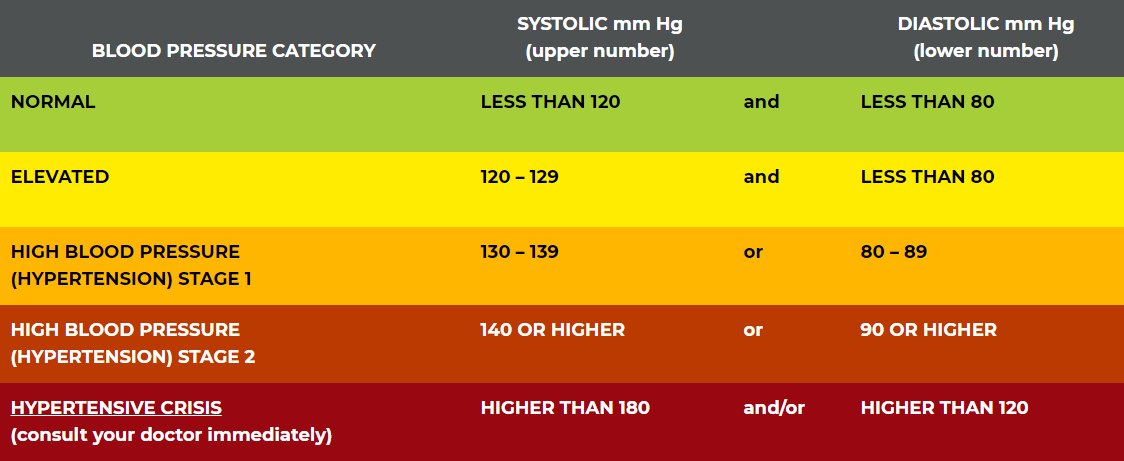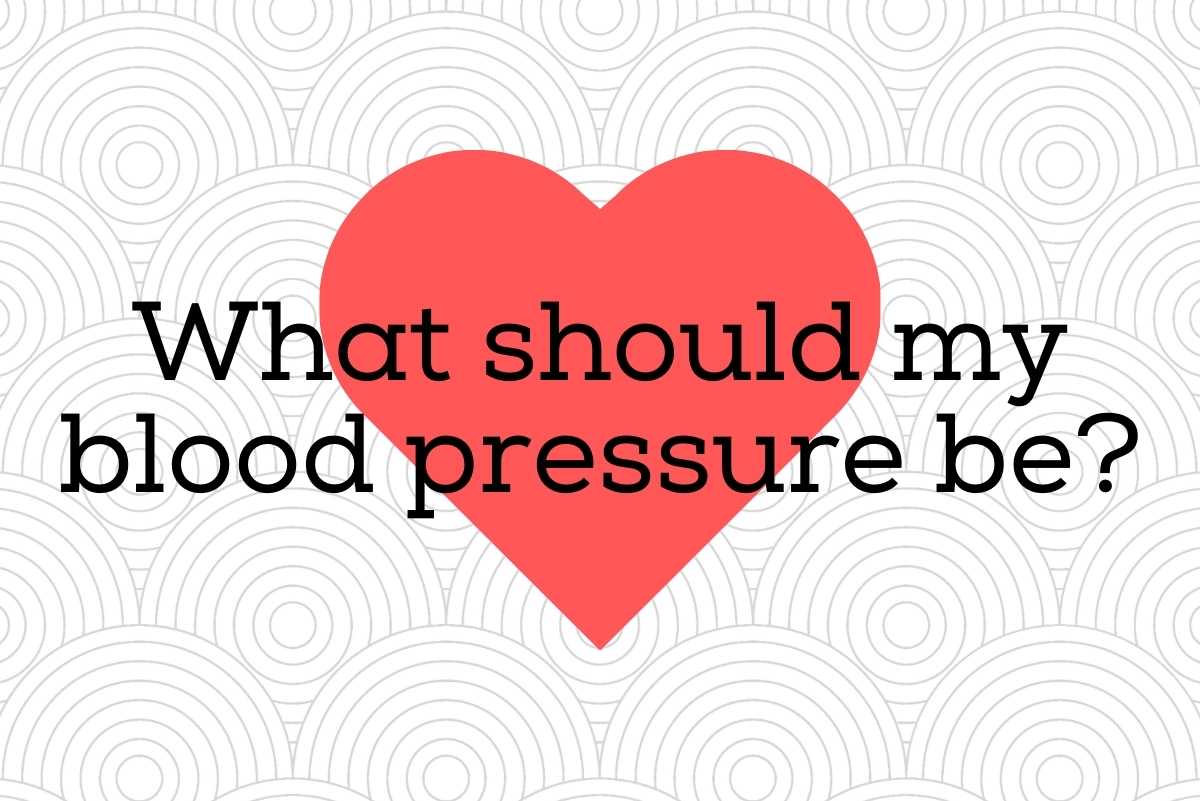It’s a simple question. It seems like it would be a simple answer: 120/80 or less.
It’s a simple question. It seems like it would be a simple answer: 120/80 or less.
But it’s not quite that simple. Generally, doctors start recommending steps to lower blood pressure when it’s about 130/80. Over 140/90 is considered high. The damage done by high blood pressure builds up over time. A doctor can help you understand your individual situation.
Why is high blood pressure called “the silent killer?”
High blood pressure – technically known as hypertension – damages delicate tissues throughout the body, including your heart, brain, lungs, kidneys, and the walls of your blood vessels. But it has no symptoms. You can’t feel that your blood pressure is too high. That’s what makes it a “silent” killer. You can’t feel that it’s slowly leading to a heart attack or stroke. But it is.
What is blood pressure?
It’s how hard blood pushes against the inside of your blood vessels. When your heart contracts it pushes blood out through your arteries to all of the billions of cells in your body. This is when the pressure is highest and gives the top number. When your heart relaxes between beats the pressure drops, giving the lower number.
What do the numbers mean?
They are a good indicator of how well your heart and blood vessels are working. Blood pressure is essential to life. It is necessary in order to get blood to your body’s tissues and then back to the heart and lungs. A reading of 0/0 means your heart has stopped beating! But too much pressure means your heart is having to work too hard. Here is how the American Heart Association classifies blood pressure levels:

Image provided by AHA: https://www.heart.org/en/health-topics/high-blood-pressure/the-facts-about-high-blood-pressure
How do I get tested?
A blood pressure test is fast, safe, simple and painless. It involves putting an inflatable cuff around your upper arm. The cuff is inflated (the squeezing can be a little uncomfortable) and then slowly deflated. It takes about a minute. All you need to do is hold fairly still and remember to breathe normally. Your doctor will take your blood pressure every time you visit. You can also get tested at your local health department office, and most commercial pharmacies have blood pressure machines for adults to use at no charge.
What should I do if my numbers are high?
Make an appointment to see your doctor. If you don’t have a primary care physician, you can use the Find a Doctor [link] feature on our website or contact your insurance company. Your local health department can also provide testing and treatment. If your blood pressure is higher than 180/120, you should get care immediately.
Can I reduce my risk of high blood pressure?
For most people, the answer is yes!
Some factors are beyond control, such as family history, age (blood pressure tends to rise as we age), race (high blood pressure tends to be more common and severe in African-Americans), or gender (high blood pressure tends to be more common in men than in women under age 65). However, science has shown that a healthy lifestyle can help control blood pressure, even in people with risk factors they can’t modify.
According to the AHA, key ways to lower your risk include:
- Get – or stay – physically active. You don’t have to run marathons. Just 20-30 minutes a day of walking, cycling, swimming, dancing or any other physical activity you enjoy will make a big difference. The St. Mary's Wellness Center can help.
- Eat a healthy diet. A diet that is low in salt, saturated fat, trans-fat and sugar can help lower your blood pressure. If you’re not sure how to get started, talk to your doctor or a nutritionist. Small changes over time are often easier to make and stick to. Learn about nutrition services at St. Mary's.
- Maintain a healthy weight. Being overweight or obese can lead to many kinds of health problems – including diabetes—in addition to high blood pressure. Ask your doctor to help you make permanent lifestyle changes. Avoid fads that can lead to “yo-yo” weight gain. Get started with diabetes education.
- Drink alcohol in moderation. Drinking too much can raise your blood pressure and increase your risk of numerous health issues, from diabetes to cancer to suicide.
- Treat sleep apnea. This condition, in which you stop breathing several times each night, is often marked by excessive snoring. It’s hard on your body, including your heart.
- Smoking and tobacco use. Less is better. None is best. Tobacco products can be addictive. St. Mary’s offers the American Lung Association Freedom from Smoking class, led by an ex-smoker. It has been shown to be highly effective in helping people quit. Also remember that second-hand smoke can harm the ones you love. Learn about Respiratory Services at St. Mary's.
- Take your medicine. Your doctor may prescribe medications to lower your blood pressure and better manage conditions such as high cholesterol and diabetes. Taking these drugs as prescribed can reduce your risk of high blood pressure as well as complications such as vision loss, kidney failure, and peripheral artery disease.
- Manage stress. Too much stress can raise your blood pressure and also lead to behaviors that can increase your blood pressure such as smoking, drinking alcohol, eating a poor diet or being physically inactive. Talk to your doctor for help. Also, AHA has suggestions on how to manage stress.
Oconee Heart & Vascular Center is Your Local Heart Health Partner
Oconee Heart & Vascular Center is proud to provide high-quality cardiac and blood vessel care for patients across our region. From preventive services to emergency intervention to chronic disease management, we are here for you.
We embrace the Mission of St. Mary's to be a transforming and compassionate healing presence in our communities.

